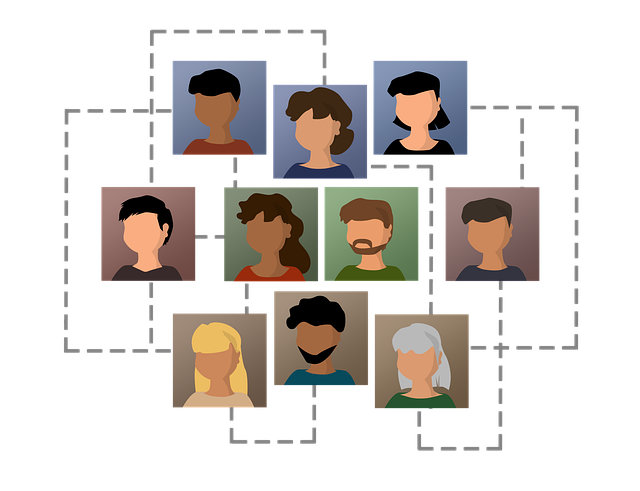In a world that moves at the speed of a click, efficient courier services have become the unsung heroes of our daily lives. Whether it’s a last-minute birthday gift or a crucial business document, the reliability of courier services is paramount. What makes these services seamlessly weave into our fast-paced lives? It’s the magic of effective courier software.
Unraveling the Basics: What is Courier Software?
Courier software is the wizard behind the curtain, orchestrating the intricate dance of parcels and packages from sender to recipient. It’s the digital brain that powers the logistics, ensuring that your package doesn’t take an unexpected detour to Timbuktu. Think of it as the GPS for your parcel’s journey.
But how does it all work?
Imagine a world where every courier company relies on handwritten notes and manual scheduling. Chaos, right? Cloud-based transport software eliminates this chaos, streamlining the entire process from order placement to final delivery.
Seamless Scheduling: The Heartbeat of Courier Operations
At the core of every successful courier service lies a well-oiled scheduling system. This is where the magic begins. Instead of scribbled notes and messy calendars, sophisticated courier software automates and optimizes the scheduling process. It’s the difference between sending your parcel on a scenic route versus the fastest highway.
Why does scheduling matter?
Efficient scheduling ensures that your parcel takes the most direct route to its destination. It minimizes delays, reduces fuel consumption, and, most importantly, ensures your package arrives on time. Courier software takes the headache out of logistics, making sure your parcel is on the move when it needs to be.
Real-Time Tracking: A Game-Changer for Both Senders and Recipients
Remember the days of nervously pacing around, waiting for the doorbell to ring with your awaited package? Those days are long gone, thanks to real-time tracking provided by cutting-edge courier software.
How does it work?
Every step of your package’s journey is tracked and updated in real time. From the moment it leaves the sender’s hands to the triumphant knock on your door, you can follow its journey on your smartphone or computer. It’s like a virtual companion for your parcel.
Customer Communication: Keeping You in the Loop
Courier software doesn’t just stop at tracking. It excels in keeping you informed. Imagine receiving a friendly notification on your phone, letting you know your package is out for delivery. It’s like a digital pen pal keeping you company throughout the delivery process.
Why is communication key?
In a world where information is king, keeping customers in the loop builds trust. It transforms a seemingly anonymous courier service into a reliable partner. Whether your package is delayed due to unexpected weather or it’s just a few blocks away, transparency in communication is the key to customer satisfaction.
The Human Touch in a Digital World
In the era of algorithms and automation, it’s easy to forget the human touch. Courier software, while incredibly efficient, is not devoid of humanity. It’s the people behind the screens who ensure that your parcel is handled with care and reaches its destination safely.
Who are the unsung heroes?
From the meticulous hands that pack your parcel to the friendly faces that deliver it to your doorstep, there’s a human touch at every stage. Courier software simply enhances their capabilities, making the entire process smoother and more reliable.
Choosing the Right Courier Software: A Guide for Businesses and Individuals
Now that we’ve unveiled the importance of effective courier software, how do you choose the right one for your needs? It’s like finding the perfect pair of shoes – it has to fit just right.
Consider these factors:
- User-Friendly Interface: The best courier software is like a good friend – easy to understand and reliable. Look for a user-friendly interface that doesn’t require a PhD in logistics to navigate.
- Scalability: Whether you’re a small business sending a handful of parcels or an enterprise managing a plethora of shipments, choose software that grows with you.
- Integration Capabilities: A seamless experience requires integration. Ensure that your chosen courier software plays well with other tools and platforms you use.
- Real-Time Tracking Features: The heart of modern courier services lies in real-time tracking. Ensure that the software you choose provides accurate and timely updates for both senders and recipients.
The Final Mile: Wrapping Up the Parcel and the Post
In the grand symphony of logistics, courier software is the conductor, ensuring that every note is played to perfection. From scheduling to real-time tracking, it’s the backbone of a reliable and efficient courier service.
So, the next time you receive a package at your doorstep, take a moment to appreciate the invisible hands and the digital wizardry that made it all possible. It’s not just about parcels; it’s about connections, reliability, and the human touch in a digital world. Cheers to the unsung heroes of the courier service – may your journeys always be swift and your deliveries, always on time.





 How to7 years ago
How to7 years ago


 More4 years ago
More4 years ago


 More6 years ago
More6 years ago


 Interview4 years ago
Interview4 years ago


 Other Internet Tech6 years ago
Other Internet Tech6 years ago


 More6 years ago
More6 years ago


 Business Ideas6 years ago
Business Ideas6 years ago





